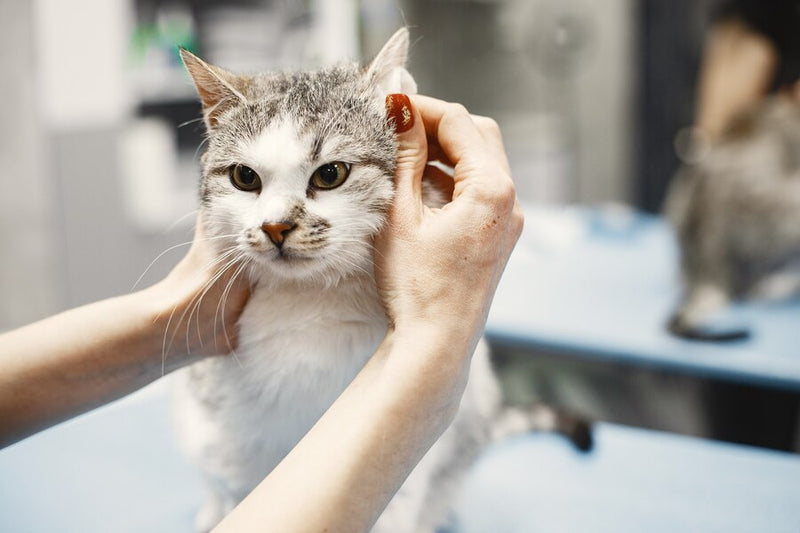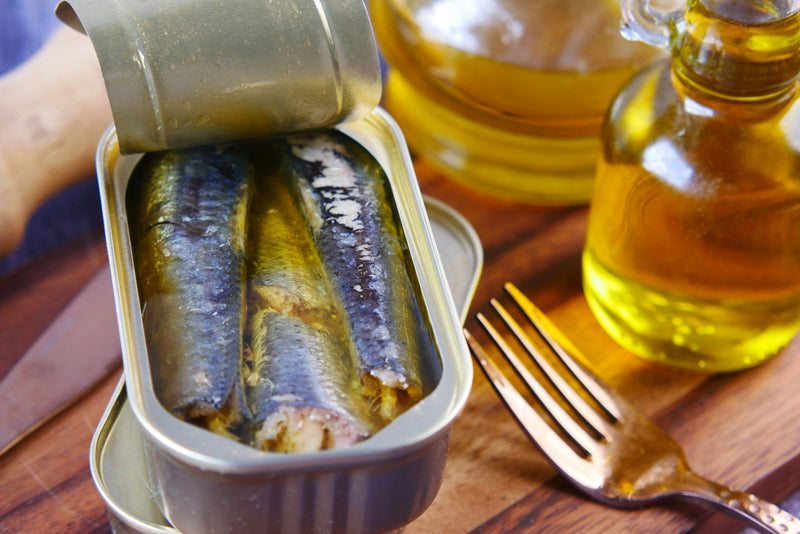
Welcome to Gritty Pet Co.
Your Canadian, specialty Pet Health & Wellness destination. 🇨🇦

Vet Reviewed & Approved
Dr. Ibrar A. is our veterinarian and a key member of our team. ✅
What Should Chickens Eat? Embarking on the journey of backyard chicken keeping unlocks a world of benefits, from farm-fresh eggs to natural pest control. Yet, the cornerstone of a thriving flock lies in understanding the dietary needs of its members.
Today we delve into the essentials of chicken nutrition, offering a comprehensive guide to all things chicken nutrition through a blend of practical advice and advanced insights. This article aims to equip homesteaders and backyard enthusiasts with the knowledge to foster a healthy, happy, and productive flock.
Key Takeaways
- Feed According to Age, Breed Size, and Purpose: Tailor your feed choice not only by the chicken's life stage but also to their breed and the purpose for which you have decided to raise them. Start chicks on a high-protein starter feed (20%), transition pullets (females not yet laying) to grower feed with slightly less protein (15-16%), and switch to calcium-rich (3-4%) layer feed for laying hens. Roosters tend to adapt well to layer feed, though they would do better with less calcium and slightly more protein overall.
- Incorporate Grains, Greens, Grit, and Grubs for a Balanced Diet: Diversify your flock's diet with a mix of grains (Corn, rice, wheat, barley, oats), fresh greens (lettuce, kale, broccoli, etc.), essential grit (Calcium carbonate) for digestion, and protein-rich grubs and other insects. This combination ensures a balanced nutrient intake, aiding overall health and egg production.
- Practical Feeding Tips for Optimal Health: Blending healthy treats like kitchen scraps and garden produce into your chickens' diet enriches their nutrition, keeping treats under 10% (ideally 5%) for balance. Equally vital is ensuring constant water access and tailoring feeding practices to both your schedule and their needs, fostering their well-being.
What Should Chickens Eat? Feeding Chickens for Homestead Health and Happiness
When embarking on the fulfilling journey of raising chickens, whether it be in a backyard or on a multi-acre homestead, one critical question often arises: what to feed chickens to ensure their health and happiness? The secret lies not just in the feed itself but in understanding the unique nutritional needs at different stages of their lives, providing healthy treats, and adopting effective feeding practices.

Feed Types by Age
Chicks (0-8 weeks) need a starter feed high in protein (about 18-21%) to support their rapid growth. This high protein content is crucial for developing their bodies and immune systems.
Pullets (8-20 weeks, female) and Cockerels (8-20 weeks, male) should transition to a grower feed, which has slightly less protein (around 16-18%) than the starter feed. This supports their continued growth without the excess protein that can cause issues.
Layers (20+ weeks or at the onset of laying) require layer feed with added calcium (0.5-4%) for eggshell production. This feed typically has around 16-19% protein. Additional calcium sources like crushed oyster shells should be provided in a separate container so hens can consume them as needed.
Healthy Treats and DIY Food Scraps
Offering your chickens treats can be a great way to provide extra nutrients and keep their diet interesting. However, it's important to ensure these treats are healthy and safe.
Vegetables and fruits from the garden, such as leafy greens, apples, and berries, are excellent treats.
Kitchen scraps can also be a good source of nutrients, but avoid anything toxic to chickens, such as onions, chocolate, avocado, and tomato plants (the actual fruit is fine, though!). Avoid rotten leftovers containing fungal or bacterial contamination. Here is a link to a list of other foods to avoid.
Fermenting your chicken feed or creating homemade mixes can boost its nutritional content and help you manage feed costs. Fermented feed improves digestion and can make your feed last longer. The fermentation process provides an alternative to probiotics and prebiotics.
Always provide grit (Calcium material) with treats to aid in digestion, especially if the treats are larger or harder than their usual feed (such as sunflower seeds).
Note:
Remember that treats are not an appropriate substitute for a balanced diet but can be offered in quantities up to 10% of the flock's daily caloric intake.
Feeding Practices
Adapting feeding practices to fit your routine and the needs of your flock is key:
Free-choice feeding allows chickens to eat as they please throughout the day, which can be particularly beneficial for layers.
Free-range practices allow chickens to scavenge and scratch for pests and other insects or plants which can significantly reduce their commercial feed intake. Consider possible predation issues in your area before you release your flock.
Clean, fresh water is absolutely essential and should be available at all times to prevent dehydration and maintain health.
Consider the specific needs of different breeds, as some may require adjustments in their diet for optimal health and productivity.
For more detailed comparisons and recommendations on feed types and brands tailored to different chicken ages and breeds, exploring resources like The Happy Chicken Coop and Backyard Chicken Coops can offer valuable insights.

Bonus Tips for Advanced Chicken Care
Feed Ingredient Benefits: Explore the benefits of key feed ingredients. For example, flaxseed can enhance egg omega-3 fatty acid (essential fatty acid for chicken) content. Have you considered the nutritional boost certain ingredients offer?
Cost Management Strategies: Look into bulk purchasing or joining a feed co-op to save on costs. Have you thought about how buying in bulk or collaborating with nearby chicken keepers could reduce your expenses?
Flock Health Monitoring: Regularly observe your chickens' health in response to diet changes. Are their feathers glossy and full? Are they active and engaging? These signs can tell you a lot about the adequacy of their diet.
Sustainability in Feeding: Consider the environmental impact of your feeding practices. Are you using locally sourced feed? Could growing some of your chicken's feed reduce your carbon footprint?
Foraging and Exercise: Encourage natural behaviours like foraging, which can improve health and reduce feed costs. Do you have space for a secure foraging area?
Grit: The Unsung Hero of Digestion
Chickens lack teeth, making grit a must-have for breaking down food. Comprised of tiny rocks or coarse sand, grit aids in grinding down feed in the gizzard, ensuring efficient nutrient absorption. Offer a separate container of grit to your flock, allowing them to self-regulate their intake based on need. Calcium based grit is preferable for hens.
Grubs: Protein-Packed Treats
Grubs offer a high-protein snack that chickens love, crucial for feather development and egg production. Introducing live or dried grubs into their diet mimics natural foraging behaviour, provides mental stimulation, and makes essential nutrients accessible in a behaviorally appropriate way. Additionally, grubs like mealworms and black soldier fly larvae can be sustainably raised at home, offering an eco-friendly feeding option.
Incorporating grit and grubs into your chickens' diet supports their digestive health and provides the protein boost needed for a flourishing flock. Insects are enriched sources of protein having fast growth and minimal negative impact on the environment. Try hand-feeding grubs to young hens to secure your bond with them!
FAQ
1. When can I start feeding my chicks treats?
From 1-2 weeks old, chicks can enjoy small amounts of treats. It's vital to provide grit alongside to aid digestion but ensure that chicks receive smaller grit than what full-grown hens would be given. Treats should complement the primary starter feed for your chicks, not replace it.
2. What age should I switch chickens to layer feed?
Transition to layer feed around 20-21 weeks old or when your hens start laying. Early switching can cause kidney damage due to the high calcium content in layer feed, which young birds can't handle well.
3. Can I feed kitchen and garden scraps to my chickens?
Yes, chickens can benefit from various kitchen and garden scraps, such as leafy greens and vegetables, but avoid toxic foods like onions, spring onions, and potatoes. Keep an eye on rotten or decaying material and avoid adding it to your chicken feed.
4. What's the best way to save on chicken feed costs?
Consider fermenting your chicken feed, which can make it more digestible and extend its volume, or explore homemade feed recipes tailored to your flock's nutritional needs. These methods can be more labor-intensive but offer cost savings and nutritional benefits.
5. How do I ensure my chickens are getting a balanced diet?
Ensure a balanced diet by feeding age-appropriate commercial feeds, supplementing with calcium sources like oyster shell or calcium carbonate for laying hens, and offering a variety of safe kitchen and garden scraps. Treats should be given in moderation, following the 90:10 rule for commercial feed to treats ratio.
Top 3 YouTube Videos on What Should Chickens Eat
1. DIY Healthy Homemade Chicken Feed:
This video guides you through making your own chicken feed, ensuring it's healthy and suited to your chickens' needs. A great start for those looking to tailor their feed to specific requirements.
2. 12 Easy-To-Grow Crops You Can Use To Feed Your Chickens:
Discover how to supplement your chickens' diet with crops you can easily grow yourself. This video is perfect for those looking to reduce feed costs and provide fresh, nutritious options.
3. Grow Your Own Chicken Feed | Sustainable Chickens:
Dive into sustainable practices by learning to grow your own chicken feed. This video is ideal for homesteaders aiming for a self-sufficient, eco-friendly approach to chicken care.
External Links for Further Reading
- Extension Services - For in-depth guides on poultry nutrition and health. Visit Site.
- PoultryDVM - Offers a toxic plants database which could be useful for identifying plants harmful to chickens. Visit Site.
- BackYard Chickens Community - A forum for sharing experiences and advice on raising chickens, including feed and nutrition. Visit Site.
The Essence of Homestead Chicken Care
Ultimately, the secret to feeding chickens for health and happiness revolves around attention to detail, an understanding of your chickens' life stages and breeds, and a willingness to take the extra step. Whether through the precise formulation of feeds, the thoughtful inclusion of treats, or the seamless integration of feeding practices into daily routines, each aspect plays a pivotal role in fostering a healthy, happy flock.

















